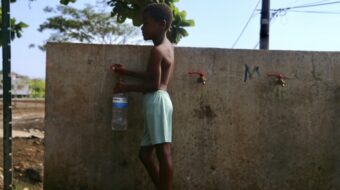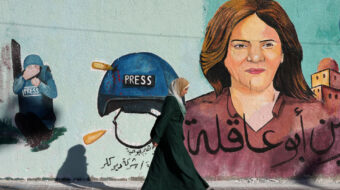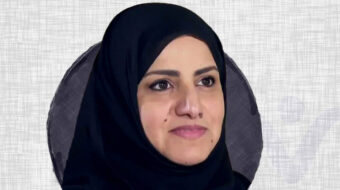The end of the year is a fitting time to step up correspondence with Gerardo Hernandez, Fernando Gonzalez, Ramon Labiñino and Antonio Guerrero, in jail now for 13 years. Their cause is just: they are serving cruel sentences in U.S. federal prisons for defending the Cuban people from U.S. terrorism.
The prisoners appreciate the vigorous worldwide campaign on their behalf. Nevertheless, as their years in jail mount, they need reminders that they’re not forgotten, that they are not alone, and that our support does not waver.
Here’s how to address letters to the prisoners:
Gerardo Hernandez, No. 58739-004, U.S.P. Victorville, P.O. Box 5300, Adelanto, CA 92301
Antonio Guerrero Rodríguez, No. 58741-004, FCI Florence, P.O. Box 6000, Florence, CO, 81226
To write to Fernando Gonzalez, address the envelope: Rubén Campa, No. 58733-004, FCI Terre Haute, P.O. BOX 33, Terre Haute, IN, 47808. (But address the letter inside to Fernando.)
To write to Ramón Labañino, address the envelope: Luis Medina, No. 58734-004, FCI Jesup, 2680, 301 South, Jesup, GA 31599. (But address the letter inside to Ramon.)
Rene Gonzalez recently left prison, because he finished his term. He is unable to receive letters because the location in Florida where he is serving probation is undisclosed.
Writing to the prisoners is often a two-way process. For instance, during December Antonio Guerrero provided reports and opinions for several correspondents. He writes from the Florence, Colorado prison, where he is held
In a year-end review, he notes that Rene Gonzalez has “freedom but he is in constant physical danger, it is a freedom without being able to have Olguita and his daughters next to him; it is a freedom without freedom. Gerardo Hernandez continues under the terrible conditions of a penitentiary, something I know very well. His strength remains high against the injustice of the double life sentence and despite not being able to receive visits from Adriana. For me, the recent visit of my two sons has been the most wonderful thing that has happened to me in these 13 years of imprisonment.”
Referring to the recently concluded International Colloquium for the Five held in Holguin, Cuba, Antonio says, “It gave great strength to us to hear about the participation of friends from all over the world. The struggle for our cause is growing.” He observes, however, we are “in the middle of a world that can not take it anymore and is dying of pain. It is a world that is asking us to run to help it in order to save humanity from so much selfishness, a world that is taking us, as Fidel affirmed, ‘in a relentless pace towards a definite and total catastrophe.'”
In another letter, Antonio asks, “Where will all this craziness lead? How can the world deal with this ambition? Is it perhaps so difficult to realize that this market system of the rich countries is unsustainable? What will 2012 bring, apart from more ‘smart missiles’ and killings of innocents?” Antonio declares that, “an embrace of brotherhood is worth more than all the gold in the world.”
Antonio sees “more instability in the normal prison operations. It was almost normal that in the month of December we would have a lockdown. On the least excuse they close the entire prison.”
In another letter to his supporters, Antonio recalls an exchange with a “soul brother” named Manuel, who wrote, “Now we have CELAC, the Community of Latin American and Caribbean states. Many in the world are trembling before the fascist wave of imperialism, [but] in this very hour and place – the earth – we see great processes bringing about Our America.”
Antonio agrees: “CELAC with many challenges ahead, represents hope for brotherhood, justice, and peace for all the peoples of Latin America and the Caribbean, and more, for all of humanity.” In closing, he quotes the great Chilean poet Pablo Neruda, the immortal poet of the Americas, “Peace for all those who live, peace for all the lands and the waters.”

MOST POPULAR TODAY

Zionist organizations leading campaign to stop ceasefire resolutions in D.C. area


High Court essentially bans demonstrations, freedom of assembly in Deep South

Communist Karol Cariola elected president of Chile’s legislature

Afghanistan’s socialist years: The promising future killed off by U.S. imperialism






Comments